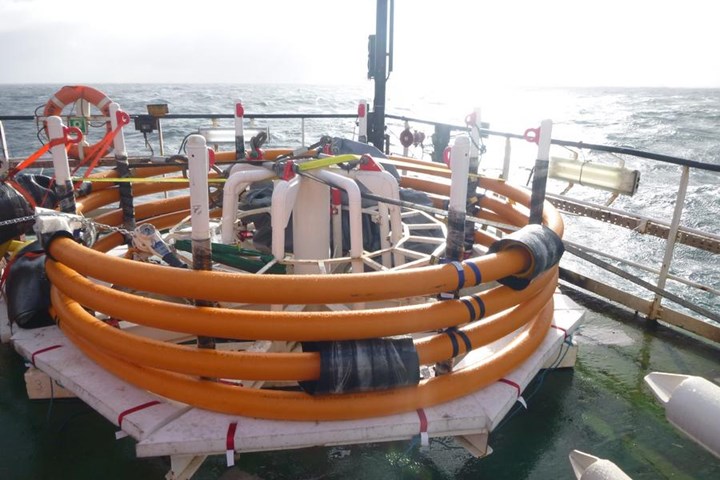Strohm supplies Australia with thermoplastic composite pipe jumper spools
Two-inch, 10,000-psi TCP jumpers will be supplied for the Woodside Julimar project. This is the first time Strohm’s TCP technology is being used in this region.

Photo Credit: Strohm
Appointed by Subsea 7 (Sutton, U.K.) for the design, manufacture and delivery of two thermoplastic composite pipe (TCP) jumper spools — which reduces installation, transportation and fabrication costs of well jumpers and pipeline spools — Airborne Oil & Gas (rebranded as Strohm in October, IJmuiden, Netherlands) has made successful inroads into the Western Australia oil and gas industry with its TCP technology being used for the first time in the region. According to the company, it is said to be world’s first manufacturer of fully bonded TPCs.
With the contract, the company says it will supply two-inch, 10,000 psi TCP jumpers to be used for monoethylene glycol (MEG) injection service. The TCP jumpers were planned for delivery later this 2020, and will be deployed in the Julimar field, located approximately 200 kilometers offshore northwestern Australia.
This forms part of a wider contract awarded by Australia’s leading natural gas producer Woodside (Perth) on behalf of the Julimar-Brunello joint venture (Woodside and KUFPEC) to Subsea 7 to design, procure, install and commission a 22-kilometer, 18-inch corrosion-resistant alloy (CRA) gas transmission flowline and an umbilical system.
Related Content
-
Plant tour: Airbus, Illescas, Spain
Airbus’ Illescas facility, featuring highly automated composites processes for the A350 lower wing cover and one-piece Section 19 fuselage barrels, works toward production ramp-ups and next-generation aircraft.
-
JEC World 2024 highlights: Thermoplastic composites, CMC and novel processes
CW senior technical editor Ginger Gardiner discusses some of the developments and demonstrators shown at the industry’s largest composites exhibition and conference.
-
The potential for thermoplastic composite nacelles
Collins Aerospace draws on global team, decades of experience to demonstrate large, curved AFP and welded structures for the next generation of aircraft.



